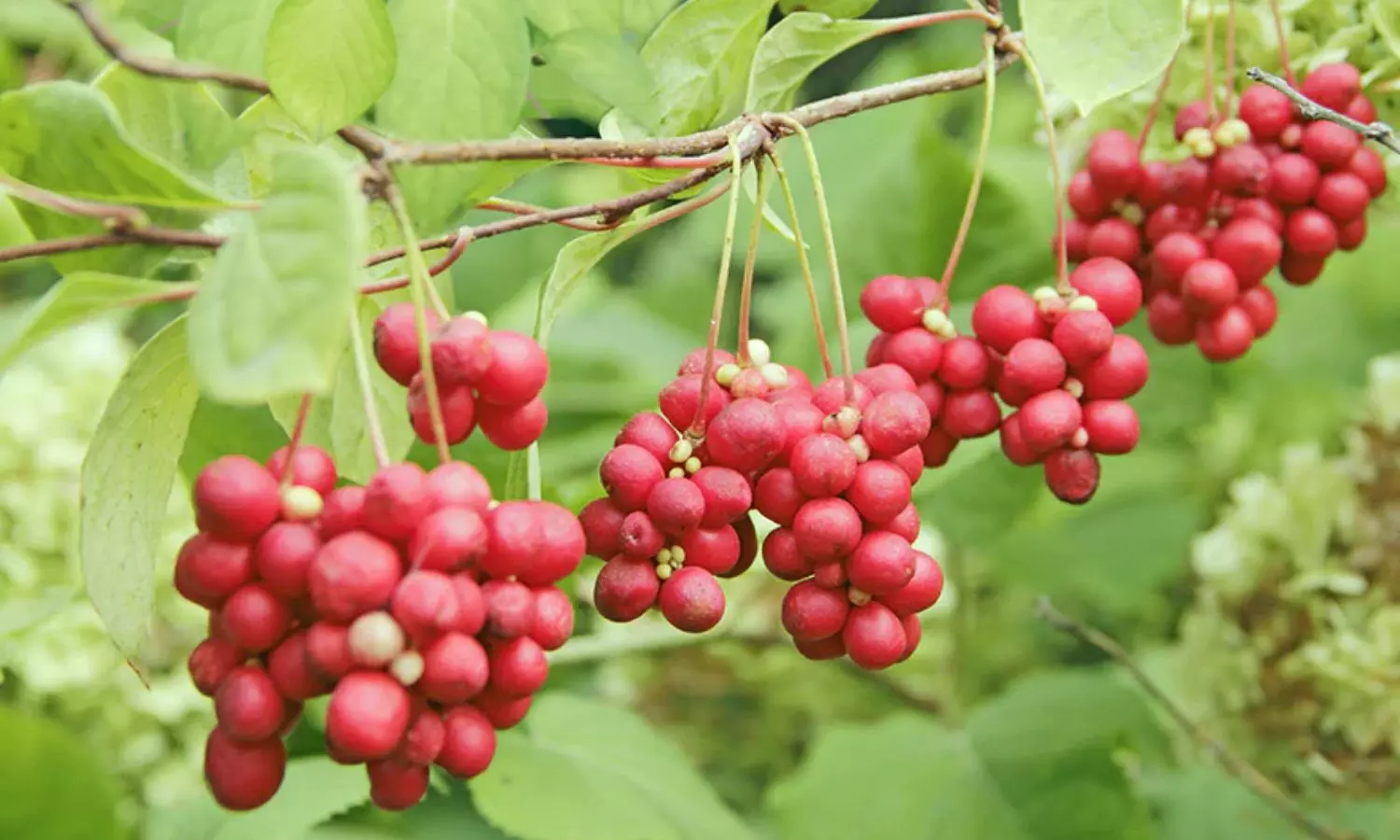Magnolia berry, fruit used in Chinese medicine, promising as treatment in colon cancer: Study

UK: A new study published in ACS Pharmacology & Translational Science found that a fruit used in Chinese medicine contains a very effective compound that could help treat colon cancer.
The compound called Schisandrin B (Sch B), a lignan extracted from the fruit of Schisandra chinensis (known as five-flavor berry or magnolia berry), induced apoptosis and inhibited cell proliferation and tumor growth in vitro and in vivo. The findings provide an essential background for clinical trials investigating the effects of Sch B in patients with colon cancer.
The anti-tumor compound, when introduced to late-stage colon cancer cells, performed especially well.
The tiny magnolia berry, a staple in traditional Chinese medicine, may hold the key to fighting one of the most common and lethal forms of cancer. The plant is already widely available online, though it should be taken only under medical supervision due to various known adverse drug interactions.
Colon cancer, or colorectal cancer, is among the most prevalent and lethal malignant tumors in the world. The lack of effective therapies highlights the need for novel therapeutic approaches. Schisandrin B is a lignan extracted from the fruit of Schisandra chinensis and has been reported for its anticancer properties. However, to date, no studies have been performed to characterize the exact molecular mechanisms underlying the antitumorigenic effects of Sch B in colon cancer.
To address the knowledge gap, Murphy Lam Yim Wan, School of Pharmacy and Biomedical Sciences, Faculty of Science and Health, University of Portsmouth, Portsmouth, United Kingdom, and colleagues aimed to explore the antitumorigenic effects of Sch B in colon cancer and to understand the underlying therapeutic mechanism.
For this purpose, the researchers performed a comprehensive analysis of the molecular mechanism underlying the antitumorigenic effects of Sch B on human colon cancer cells using a combination of RNA-seq, Raman spectroscopy, molecular biological experiments, and computational docking.
The in vivo efficacy was evaluated by a mouse xenograft model. Sch B reduced cell proliferation and triggered apoptosis in human colon cancer cell lines.
The key findings of the study were as follows:
- Raman spectroscopy, computational, RNA-seq, and molecular and cellular studies revealed that Sch B activated unfolded protein responses by interacting with CHOP and upregulating CHOP, which thereby induced apoptosis.
- CHOP knockdown alleviated the Sch B-induced reduction in cell viability and apoptosis.
- Sch B reduced colon tumor growth in vivo.
The latest study gives cause for hope as it opens up new avenues toward more targeted, less toxic therapies where natural compounds play a larger role in cancer treatment.
Despite the promising potential of Sch B and magnolia berry extract in cancer treatment, the high costs of clinical trials and the inability to patent natural products pose significant barriers to their approval as medical treatments.
“These results provided an essential background for clinical trials examining the effects of Sch B in colon cancer patients,” the researchers concluded.
Reference:
ACS Pharmacol. Transl. Sci. 2024, 7, 3, 863–877. Publication Date: February 22, 2024. https://doi.org/10.1021/acsptsci.4c00009
